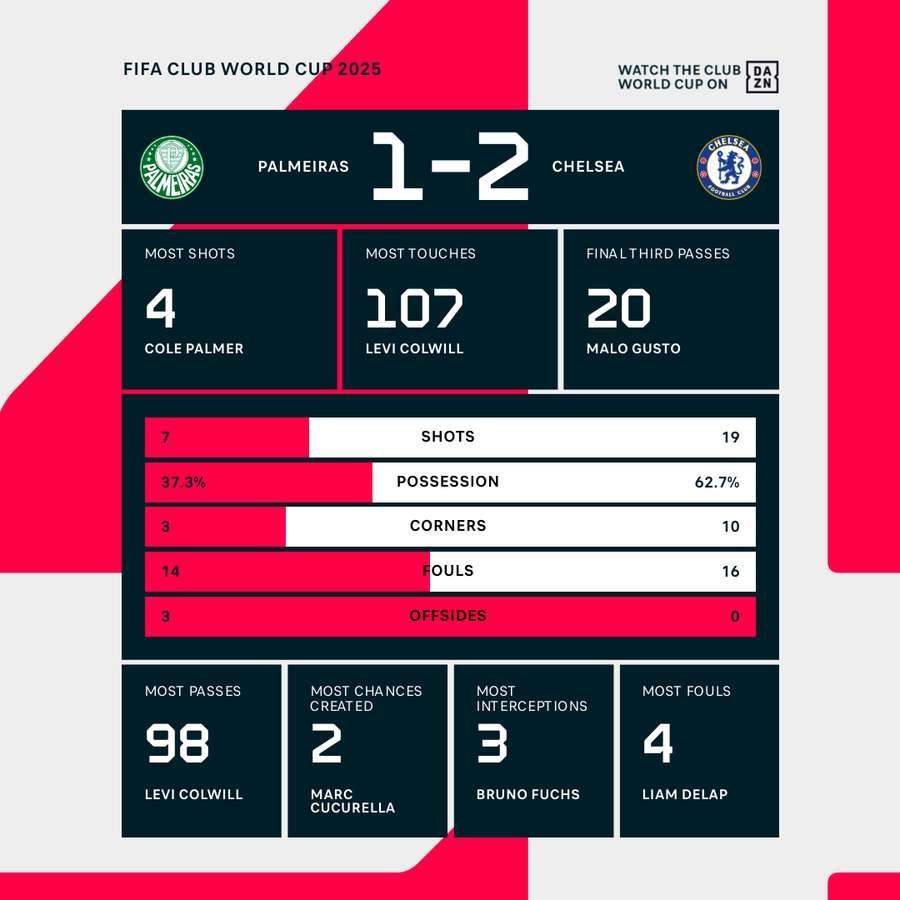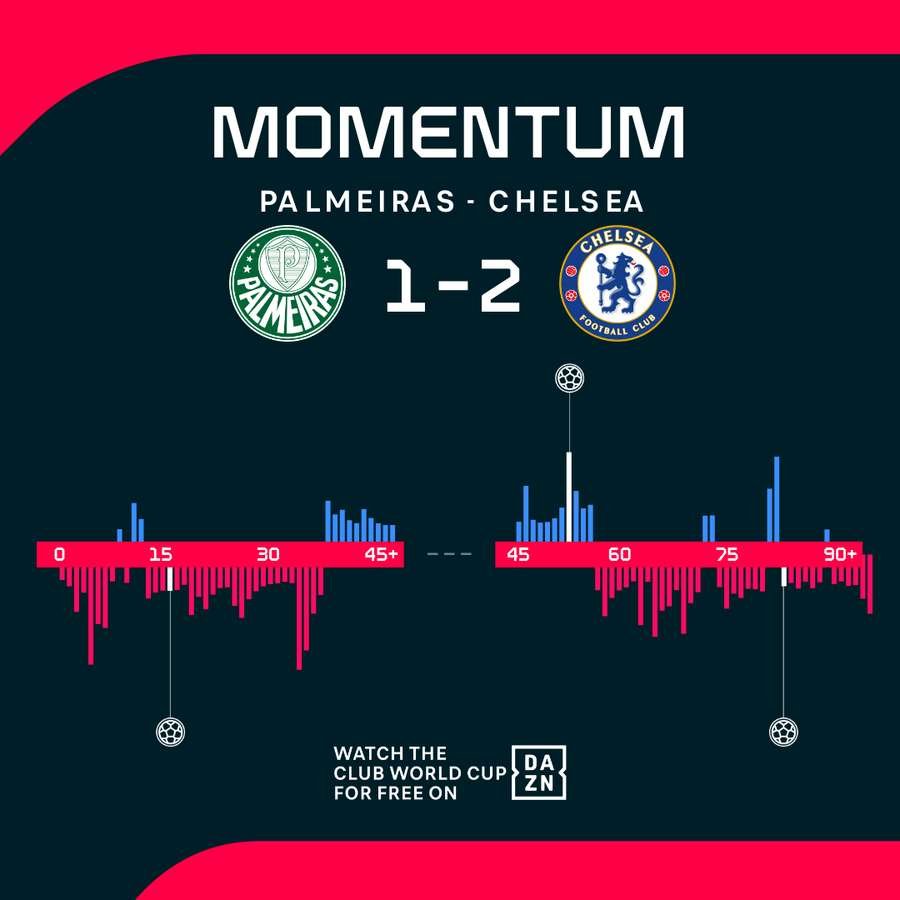As the teams prepared for kick-off at Lincoln Financial Field, both Palmeiras and Chelsea were aware that their potential opponents in the semi-finals of the Club World Cup would be Fluminense, who had earlier secured victory over Saudi Pro League titans, Al Hilal.
The Brazilian side registered the first attempt of the match in the second minute when Bruno Fuchs had his shot blocked, but it was Chelsea who started with greater intensity, led by Cole Palmer.
Chelsea Takes Control from the Start
Almost immediately following Palmer’s first attempt on goal, Enzo Fernandez came close with one of his two efforts in a dominant start that saw Chelsea enjoy 77.6% possession in the opening quarter-hour.
It felt inevitable that the Blues would score, and they did so just after the 15-minute mark.
Trevoh Chalobah surged forward into Palmeiras’ defensive area, and his low, well-placed pass was brilliantly controlled by Palmer, who skilfully turned and slotted it home.
This early goal would have set alarm bells ringing for Palmeiras, as Chelsea had a stellar record of three wins, no draws, and just one loss when scoring first in the Club World Cup.
Chelsea continued to press, with Marc Cucurella, Chalobah, and Fernandez contributing to a total of eight shots before the half-hour mark.
_______________________________________________
Sponsored:
FIFA Club World Cup – Every Game Free, exclusively on DAZN.
Sign up here to start streaming.
_______________________________________________
Pass Completion Statistics Highlight Quality Divide
There was a stark contrast in quality evident in the passing accuracy of both teams. Chelsea’s players operated at an impressive 80% pass completion rate or higher, with Cucurella boasting a remarkable 95.5%. In comparison, most Palmeiras players hovered between 60-70%, with Micael’s 94.6% being a notable exception.

It wasn’t until the 42nd minute that Palmeiras registered their first shot on target, launched by Vanderlan. Their struggles in front of goal were partly attributable to the defensive prowess of Malo Gusto, who led the game with five tackles in the first half, including one that earned him a yellow card just before the break.
Supporters of Palmeiras may have anticipated the lack of goals, as they had been unable to break through their opponents’ defences in the first halves of all five previous games, while Chelsea had not conceded a single goal before half-time in any of their five matches.

Fans of the Blues would have been pleased with the team’s performance thus far, although new signing Liam Delap didn’t manage to make any significant impact, only touching the ball eight times before the end of the first half.
Seven minutes into the second half, Estevao, who is set to join Chelsea after the tournament, netted an equaliser from a tight angle with just Palmeiras’ second shot on target. His exuberant celebration may not have endeared him to Chelsea supporters, however.
This goal marked the Brazilian side’s third in the opening fifteen minutes of the second half, establishing a record for scoring in that timeframe at the Club World Cup.
The equaliser prompted Chelsea manager Enzo Maresca to make immediate tactical changes, including substituting Delap, who would now miss the next match after receiving a second yellow card in the tournament, and actively encouraged his team to push forward.
Late Drama: Chelsea Secures Quarter-Final Spot
This tactical shift seemed to energise the Blues as they rapidly unleashed four attempts at goal in a bid to regain control of the encounter.
Joao Pedro, who came on for Delap, demonstrated his skill during his 37-minute stint, managing eight touches in the opposition’s penalty area, a stark contrast to Delap’s single touch. His ability to penetrate deep into Palmeiras’ territory became a valuable asset in the match.

As the match progressed into its final minutes, Chelsea pushed forward once more, allowing Palmeiras only the occasional half-chance.
With a collective possession of 62.7% and 19 shots compared to Palmeiras’ seven, Chelsea’s dominance was unmistakable during the match.
In the closing eight minutes, Malo Gusto’s attempt ricocheted off Agustin Giay’s boot and found the back of the net, putting Chelsea tantalisingly close to victory. Estevao’s struggles, especially his loss of possession on 17 occasions, added to Palmeiras’ woes.
Despite their best efforts, Palmeiras managed only seven shots throughout the game, marking their lowest tally at the Club World Cup. Their inability to maintain pressure in Chelsea’s half in the last 15 minutes indicated they had simply run out of steam against a fitter, more robust Premier League side.
Check out the full match summary here.

Compiled by SportArena.com.au.
Fanpage: SportArena.com.au.
LiveScore – Live Sports Results & Odds.




